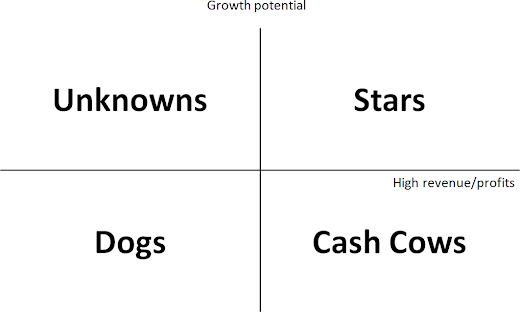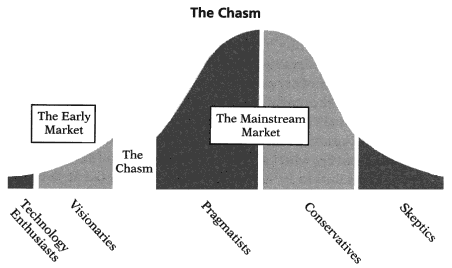Ever since the SDN hype started, vendors and pundits were quick to tell us how the SDN controllers (and programmers) will replace the traditional networking engineers.
In 2012 I thought there’s no need to worry about that happening in foreseeable future, and not much has changed since then (apart from the obnoxious never-ending should networking engineers become programmers debate).
In related news:
- CCIE certification is still relevant (in 2022), and Cisco introduced DevNet certification
- While MP-TCP got into limited production, we still haven’t solved the major problems of the TCP/IP protocol stack
- In 2021 Hype Cycle, Gartner declared OpenFlow-based SDN dead before reaching plateau
Published on , commented on July 10, 2022
SDN, Career Choices and Magic Graphs
The current explosion of SDN hype (further fueled by recent VMworld announcement of Software-Defined Data Centers) made some networking engineers understandably nervous. This is the question I got from one of them:
I have 8 plus years in Cisco, have recently passed my CCIE RS theory, and was looking forward to complete the lab test when this SDN thing hit me hard. Do you suggest completing the CCIE lab looking at this new future of Networking?
Short answer: the sky is not falling, CCIE still makes sense, and IT will still need networking people.
However, as I recently collected a few magic graphs for a short keynote speech, let me reuse them to illustrate this particular challenge we’re all facing. Starting with the obvious, here’s the legendary Diffusion of Innovations: every idea is first adopted by a few early adopters, followed by early and late majority.
Source: Wikipedia
Networking in general is clearly in the late majority/laggards phase. What’s important for our discussion is the destruction of value-add through the diffusion process. Oh my, I sound like a freshly-baked MBA whiz-kid, let’s reword it: as a technology gets adopted, more people understand it, the job market competition increases, and thus it’s harder to get a well-paying job in that particular technology area. Supporting Windows desktops might be a good example.
As a successful technology matures, it moves through the four parts of another magic matrix (this one from Boston Consulting Group).

Initially every new idea is a great unknown, with only a few people brave enough to invest time in it (CCIE R&S before Cisco made it mandatory for Silver/Gold partner status). After a while, the successful ideas explode into stars with huge opportunities and fat margins (example: CCIE R&S a decade ago, Nicira-style SDN today… at least for Nicira’s founders), degenerates into a cash cow as the market slowly gets saturated (CCIE R&S is probably at this stage by now) and finally (when everyone starts doing it) becomes an old dog not worth bothering with.
Does it make sense to invest into something that’s probably in a cash cow stage? The theory says “as much as needed to keep it alive”, but don’t forget that CCIE R&S will likely remain very relevant a long time:
- The protocol stacks we’re using haven’t changed in the last three decades (apart from extending the address field from 32 to 128 bits), and although people are working on proposals like MP-TCP, those proposals are still in experimental stage;
- Regardless of all the SDN hoopla, neither OpenFlow nor other SDN technologies address the real problems we’re facing today: lack of session layer in TCP and the use of IP addresses in application layer. They just give you different tools to implement today’s kludges.
- Cisco is doing constant refreshes of its CCIE programs to keep them in the early adopters or early majority technology space, so the CCIE certification is not getting commoditized.
- If you approach the networking certifications the right way, you’ll learn a lot about the principles and fundamentals, and you’ll need that knowledge regardless of the daily hype.
Now that I’ve mentioned experimental technologies – don’t forget that not all of them get adopted (even by early adopters). Geoffrey Moore made millions writing a book that pointed out that obvious fact. Of course he was smart enough to invent a great-looking wrapper – he called it Crossing the Chasm.

The crossing the chasm dilemma is best illustrated with Gartner Hype Cycles (oh my, there’s a Gartner reference in my blog post). After all the initial hype (that we’ve seen with OpenFlow and SDN) resulting in peak of inflated expectations, there’s the ubiquitous through of disillusionment. Some technologies die in that quagmire; in other more successful cases we eventually figure out how to use them (slope of enlightenment).

Source: Wikipedia
We still don’t know how well SDN will be doing crossing the chasm (according to the latest Gartner’s charts, OpenFlow still hasn’t reached the hype peak - I dread what's still lying ahead of us); we’ve seen only a few commercial products and none of them has anything close to widespread adoption (not to mention the reality of three IT geographies).
Anyhow, since you’ve decided you want to work in networking, one thing is certain: technology will change (whatever the change will be), and it will happen with or without you. At every point in your career you have to invest some of your time into learning something new. Some of those new things will be duds; others might turn into stars. See also Private Clouds Will Change IT Jobs, Not Eliminate Them by Mike Fratto.
Finally, don’t ask me for “what will the next big thing be” advice. Browse through the six years of my blog posts. You might notice a clear shift in focus; it’s there for a reason.

In terms of the data center, who is the best suited to run the software defined networks? Is it the network engineer, the sys admin, the vmware admin? As I soley run data centers it's these questions that have me worried about my future job secuity. When a vmware admin can just push a button to enable a firewall, a load balancer, and a wan accelerator - I believe that management may begin to wonder why that vmware admin cant just manage the appliances as well.
Cisco, of course, is trying their darndest to keep roles for everyone - ensuring responsibilities (serucity for vasa, networks for 1KV, vmware for vmware, storage for storage, etc). But I see a shift (back) to the jack of all trades engineer. I believe that there will be a handfull of people in each data center who have access to and know how to do everything pretty damn well.
Advanded troubleshooting will be relegated to the vendor. --- some may scoff at that ::: but when was the last time you've seen a storage guy toubleshoot an advanced issue on his own?
Enterprises will simply go in for Vendor developed SDN apps like VMware and Microsoft 2012 SDN...YOU REALLY DO NOT NEED A network Programmer role per se..except for some LAB/Acedemic implementations...so the best programmers will be absorbed by VMware or MSFT.
So I would see Network ADmins, CCIEs moving to VM roles..and hence a great competetion CLASH between seasoned VMadmin and Network enggs..The person who will be able to understand and handle both technologies will WIN. Also the combined role will also not offer pays like what CCIEs/CCNPs/JNCIEs are used to...so ECONOMY will take a HIT....leading to fewer admin positons...Enggs from both realms (VM/Netadmin) will take hits.
The only other option for us Cisco/Juni fans is to have a firm foot still in traditonal networking while exploring SDN and keeping a watchful and hopeful eye on Cisco/Juni developments on the SDN front.
Also Enterprises do not need the total elasticity that SDNs offer..
WHere do we see the need for dynamic changes to the network core day to day?
Also cheap network devices and Open source options are still available w.r.t traditional networks, but companies have settled on Cisco/Juni.
As of today SDN makes sense only with cloud providers.
At some point in the past we were taught Networking.
Then we got into the co-option of technical education programs via vendor "sponsorship and goodwill". Of course some perceive this as "clever" w/o consideration for whoose agenda it serves.
In many places education on Networking has been replaced by a "vendor symbiote creation process".
A form of vendor self perpetuation wearing a mantle of education in "Networking Academies". It is as if academic institutions are becoming wholly owned subsidiaries of vendors.
What we should be hiring are people with Computer and Networking Education not vendor symbiotes.
P.S.
There is nothing wrong with being a vendor symbiote but it must be recognized that it is a skewed perspective.
1) Read the comment below yours.
2) Think big picture not just your personal world.
3) Then decide, do you want to be a networking professional or just a specific vendor symbiote, implanted at the customer to ensure vendor continuance?
You have a 'Go-to' Domain....YOU KNOW WHAT TO LEARN AND PROCEED in a cetain direction...
and Cisco is not the only vendor who has symboites..what about MicroSoft? It has much of the IT world as its symboites..?
Also when the SDN dust settles down, IT WILL BE MS and not VMWARE/anyone else in SDN..no hand coding programmers required for every company utilizing SDN. So you will again have Symboites and not network pros...huh..and you will not have any say, Darlings...
SDN enggs will not be any Network pros...just point and click vm guys ppl banking on the SDN vendor (VMWARE/MS) for support.
There is no BIG pics..dear..whatever MS/Cisco/Juni gives, that will be it.
This SDN does not have a single vendor direction as of now...way too confusing.
Accountability is of top priority to Enterprise companies...
SDNs do not appeal to Enterprise customers running business critical apps.
But the scene is far from Rosy, too many differing and vendor specific implementations, better rename SDN to VDN (Vendor Defined Network). SNF is doing little to address the mess.
If each SDCC gets implemented in its own way, it would make SDN less-Sexy for Enterprises to look at and may give enough time for Cisco and others to get away.
It will certainly be interesting to see what happens now. If VMware did buy Juniper, Cisco might really be up against it in terms of the data centre.
Market cap of VMW = $38b
Market cap of JNPR = $8b
so yes, VMware could potentially buy/merge with Juniper.